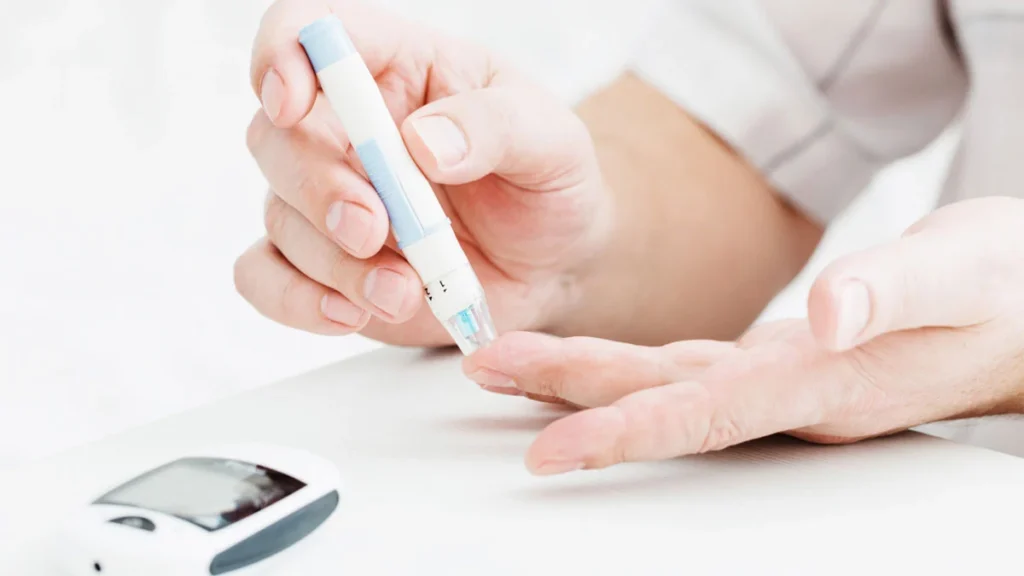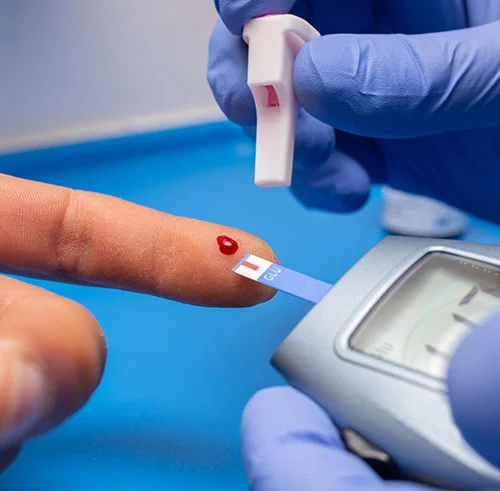
How To Control Sugar Levels Immediately
You’re just going about your normal day when it hits you – that feeling of cotton mouth, desperate thirst, and frequent urge to use the restroom. If you have diabetes, those are likely signs that your blood sugar levels have spiked up too high.
For people without diabetes, the body can usually regulate blood sugar automatically. But when you have diabetes, your blood sugar can easily get out of range based on what you eat, how active you are, your medication, and other factors.
While long-term high blood sugar needs managing under a doctor’s care, those sudden spikes require taking quick action to lower levels before bigger problems arise. Let’s take a look at how to control sugar level immediately.
Table of Contents
ToggleHow To Control Sugar Level Immediately
Step 1 – Immediately STOP Food Intake
Those excessively high glucose readings indicate your body has reached its temporary limit for processing additional carbohydrate and calorie intake. That means any extra food consumption (especially sweets, simple carbs and sugary liquids) runs a high risk of compounding the issue further.
So put down those remaining snacks or dinner plates and step away from the food court. Abstaining from additional intake lets your system focus energy on metabolizing what’s already over-circulating in the bloodstream.
Step 2 – HYDRATE Like Crazy
Drinking copious amounts of pure, sugar-free fluids like water helps in multiple ways. In addition to flushing out excess glucose through increased urination, staying optimally hydrated enables more efficient insulin production while allowing your kidneys to filter more effectively.
Sip continuously until urine turns light yellow or almost clear – visible proof those high glucose concentrations are adequately diluting.
Step 3 – Get MOVING If Physically Able
Unless you’re experiencing particularly severe discomfort or worrisome symptoms that warrant sitting still, engaging in gentle physical activity after hydrating can accelerate blood sugar reduction in multiple ways. Exercise helps muscles utilize excess glucose more efficiently while stimulating circulation and overall metabolic activity.
Simply taking a walk around the neighborhood could be sufficient, but any additional low-impact stretching or calming bodyweight movements can maximize effectiveness.
Step 4 – Consider MEDICATION Temporaries
Depending on individual circumstances and your doctor’s guidance, certain medications may provide timely reinforcements when hyperglycemia proves stubbornly persistent despite hydration and activity interventions.
Insulin injections represent the obvious solution for diabetics working from personalized dosage protocols. But other fast-acting options can also complement efforts by helping slow down the absorption of excess circulating carbs.
But remember, do not take any Over-The-Counter drugs without consulting your doctor.
Step 5 – Embrace PATIENCE & Prevention
Even with diligence, severe blood sugar spikes may require several determined hours before resolving completely back to safe, manageable levels. Remain resolute in your response, stay hydrated, periodically recheck levels, and exhale through restlessness or anxiety.
And of course, once this temporary brush with hyperglycemia concludes, focus immediately shifts toward preventative adjustments reducing future spike probabilities. Whether through diet, exercise, or medication regimen refinements, pinpointing dietary indiscretions and other potential triggers helps intercept tomorrow’s challenges today.

When to Seek Emergency Help
In some instances of severely high blood sugar, however, immediate medical assistance may indeed be warranted to help lower levels – especially for diabetics already coping with other compounding health conditions.
- Confusion, blurred vision or dizziness develop
- Abdominal pain and weakness
- Vomiting or breathing issues
- Blood sugar tests above 300 mg/dL or
- Blood sugar level remains elevated even after taking medications
Getting prompt IV fluids, insulin administration and other tailored treatments may be required to restore safe glucose levels and prevent slipping into more dangerous territory like diabetic ketoacidosis.
But don’t assume every unexpected spike automatically justifies an ER visit either. For non-diabetics generally under 200 mg/dL, try those diet and activity adjustments first before panicking.
Conclusion
If you’re experiencing frequent blood sugar spikes or having difficulty managing your diabetes, it may be time to consult with a specialist. Finding the Best Endocrinologist in Chandigarh can provide you with expert care and personalized treatment plans to help you better manage your blood sugar levels and overall health.
So next time you start experiencing that dizzying high blood sugar brain fog or fatigue, don’t just ignore it. Get up, get moving, eat some smart snacks, and closely monitor – because dodging a potential crisis is way easier than recovering from one after the fact! Your body will feel so energized and thankful when balance gets restored.
FAQs
Q1.How can I start lowering my blood sugar levels?
Ans: You can begin reducing your blood sugar immediately by stopping food intake, drinking water, and doing light exercise like walking. However, it may take a few hours for levels to fully normalize.
Q2. Can stress affect blood sugar levels?
Ans: Yes, stress can cause blood sugar levels to rise.
Q3. Is exercising safe when my blood sugar is elevated?
Ans: Generally physical activity such as a short walk can often help lower blood sugar. However, if you’re experiencing severe symptoms, it’s advisable to check with your healthcare provider before exercising.
Q4. What symptoms indicate I should seek emergency care for high blood sugar?
Ans: Get immediate medical help if you experience confusion, visual disturbances, lightheadedness, severe abdominal discomfort, extreme weakness, vomiting, difficulty breathing.
Q5. What role does an endocrinologist play in managing diabetes?
Ans: An endocrinologist, particularly a specialist like Dr Gagan Priya , can provide expert care and personalized treatment plans to help better manage blood sugar levels and overall health.
